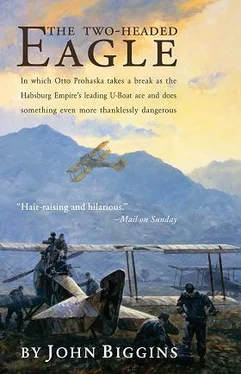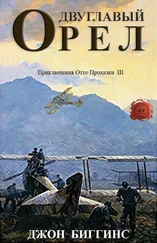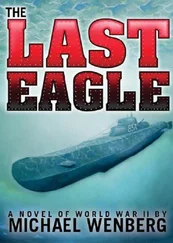Yes, I speak as though I saw it all. But then I did, as near as makes no difference. The Carso sector was tiny—perhaps ten kilometres in total— so we airmen could see pretty well the whole of it as we flew above that terrible greyish-dun landscape: the shallow valleys below us boiling with smoke suffused with orange flame; then coming down sometimes when the murk parted to see the lines of tiny human specks scurrying forward among the shellbursts: the evil greenish-yellow clouds of poison gas and the sudden white puffs of grenades and the boiling black-fiery squirts of flame-throwers; men rushing forward to kill and maim one another with grenades and entrenching tools so as to gain or regain another few square metres of this ghastly desolation. The memory haunts me to this day: the sheer crushing lunacy of it all. Why did we do it? Why did we allow them to do it to us? I was there and you were not, so I wonder if you could tell me why. Because I was there to see it, yet sometimes I think that I perhaps understand it less than you who were not.
The battle raged to westward of us throughout that second week of August. The Italians had captured Gorz, and they were now attacking the hills of Monte San Michele on the north edge and Debeli Vrh on the southern edge of the Carso escarpment, trying to fight their way on to the plateau above. Our men in the front line were suffering atrociously in their rock-bound trenches, shelled day and night so that it was impossible either to bring up food and water or to evacuate the wounded. Rationed sometimes to a cup of water a day in the summer heat and dust, plagued by great corpse-fattened blowflies, they hung on as best they could, counterattacked when ordered to do so and died in their anonymous thousands for their distant Emperor and King. Yet while this whole dismal tragedy was being played out a few kilometres away, Flik 19F sat idly on the field at Caprovizza and chewed the ends of its collective moustache with boredom and frustration. We were on standby—which is why Toth and I were not much affected in practice by our sentence of arrest—but otherwise little happened. We were short of aircraft of course: one Brandenburger had arrived back from repair, but the Lloyd which we had flown on the Monte Nero artillery-spotting operation was out of action. Toth had let the revs build up during our dive to a degree where the cylinder liners had been irretrievably damaged, so the machine was now standing in a hangar waiting for a replacement engine. This left us with three effective aircraft—two Brandenburgers and a Lloyd. Yet we felt that there was still work that we could do to support our hard-pressed comrades in the trenches. Flik 19 at Haidenschaft had been heavily engaged from the first day. Its aircraft would often return, badly shot-up, to deposit yet another blanket-shrouded bundle on the handbarrow, and add one more to the rapidly extending line of propeller-crosses in the cemetery.
It galled us all beyond measure, sitting there waiting for the telephone to ring. We were under the command of 5th Army HQ, not the local division, and it seemed as if Marburg had entirely forgotten our existence. At last, on the Saturday after Gorz fell, it all became too much: the entire officer strength of the unit—except for myself, who was confined to base—elbowed the protesting Kraliczek aside and marched down the road to Haidenschaft to offer their services to Flik 19. Heyrowsky was not able to see them—he was in the air over Gradisca that afternoon, where he shot down a Nieuport with his hunting rifle—but when he got back he sent a curt reply to the effect that Flik 19 was a front-line fighting unit and would only use the services of (as he put it) “fashion photographers and killers of civilians” when its last able-bodied flier was dead. When they got back Kraliczek had thrown a fit and threatened to have everyone court- martialled for mutiny. In the end Oberleutnant Meyerhofer, standing in temporarily as Chefpilot, had called everyone together in the mess tent and composed a round robin (as I believe you call it) to General-Oberst Boroevic. It protested our undying loyalty to the Noble House of Austria and offered our lives as pledges of our devotion, if not in the air then (if need be) in the front-line trenches, where we would fight to our last breath come shot, shell, bayonet, flamethrower or poison gas. We all signed, even the wretched Kraliczek, whom we dragged out of his office and whose reaction, when shown the document, had been that of someone in the early stages of rabies confronted with a glass of water. His hand shook visibly as he signed, with the rest of us standing around him wearing our swords and black-and-yellow belts to offer moral support. The General’s reply next day thanked us for our loyalty to our Emperor and King, but said that trained airmen were in short supply and must not have their lives squandered without thought for the future. Boroevic concluded by promising us all the fighting we wanted, and more besides, in the weeks to come.
So the early part of August passed peacefully enough for us at Capro- vizza, as the guns thundered in the west and the wind sometimes brought us the faint smell of TNT fumes, mingled (as the hot days wore by) with a hint of something even less pleasant. We often saw Italian aircraft overhead, but were prevented by our orders from doing anything about it; that is, until one day when Meyerhofer had gone up with Stabsfeldwebel Zwierzkowski to test-fly a Brandenburger just back from repair. They were away for an hour or so, and when they returned they were preceded by a large, clumsy-looking pusher-engined biplane. It was an Italian Farman SP2 artillery spotter which they had sighted over Doberdo and engaged.
The SP2 was an awful aeroplane by all accounts: a pre-war French design—outdated even in 1914—which the Italians had licence-built in huge numbers as part of an emergency programme to create an air force out of nothing. It was a mistake which I believe Lord Beaverbrook was to make a generation later: tooling up the aircraft factories to turn out vast numbers of obsolete machines. The Italians were now trying to use up stocks. But in so doing they were also using up the lives of their airmen at a fine old rate, because the SP2 was simply a death trap: too slow to run away, unable to climb out of trouble, too clumsy to dodge and with so restricted a field of fire for the observer’s machine gun in the front cockpit that the thing was effectively a flying blind spot. Meyerhofer and Zwierzkowski had made a first pass at it with the forward machine gun and shot it about a little, had allowed the Italian observer to fire back at them as much as honour required, and had then stood off to observe events. Seeing that their line of retreat across their own lines was cut off and that they were done for if they resisted further, the observer had finally stood up in his cockpit and held up his hands in surrender; very sensibly too, we all agreed. The Italians were escorted over to meet us and shook hands with us all: Tenente Balboni and Caporale-Pilota Scaranza. Their feelings were as mixed as one might have expected: downcast at their capture and the prospect of a long spell behind the wire, but glad to have come out of it alive—which was not the usual fate of Farman aircrew. We commiserated with them as we looked over their bullet-peppered machine, and all said (I was interpreting for the rest, being fluent in Italian) that it was a shame that men should be sent up to die in such miserable contraptions.
“You know what ‘SP2’ stands for, Tenente?” the observer said to me. “ ‘Seppultoro per due’—‘the Sepulchre for Two.’ ”
“No, no,” added his pilot, laughing, “it means ‘Siamo perduti’—‘We are lost’!” We entertained them to dinner that evening, and waved them goodbye the next morning as the staff car came to take them away to the prison camp. In the end the only dissatisfied party was Kraliczek, whose returns for August had been upset on three counts: (a) that yet another machine had been brought down by a unit which was not supposed to engage the enemy; (b) that the Italian had been forced down by an aeroplane which officially did not exist, since it had been signed off the books at the Fliegeretappenpark but had not yet been accepted back on to the strength of Flik 19F; and (c) —gravest dereliction of all—it had been brought down by an officer who was not on the combat flying strength of the unit. We learnt later that rather than deal with the administrative nightmares thus caused, Kraliczek had proposed letting the Italians get back into their aeroplane and fly home under a safe-conduct.
Читать дальше












